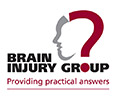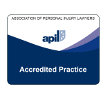FAQs
- Do you deal with clients outside of the Midlands?
- Is my case too small?
- I can’t afford to fund my case. Can you help?
- Do I only have a certain period of time to instruct you?
- What should I bring to the initial interview?
- How does my Clinical Negligence claim progress?
- How does my Personal Injury claim progress?
- What happens if the defendant admits liability for my Clinical Negligence or Personal Injury claim?
- How long will my claim for Clinical Negligence or Personal Injury take to settle?
- If my Personal Injury or Clinical Negligence case is going to take a long time to settle what do I do for money?
- Who will pay the compensation for my Clinical Negligence?
- Who will pay the compensation for my Personal Injury?
- How do I manage the compensation when my claim is over?
Do you deal with clients outside of the Midlands?
Yes we do. Clients from all over the country approach us to ask for help with Clinical Negligence or Personal Injury claims. We also act for clients injured abroad.
We are known for our expertise with brain injury, spinal injury and birth injury cases. We regularly help clients across the UK with Court of Protection matters and high-profile inquests. Our personal injury cases include road traffic accidents, occupiers’ liability, holiday claims, industrial disease and accidents at work. We also act for clients who are victims of a criminal assault.
If you are looking for a law firm with specialist skills, we will be pleased to hear from you. We can focus on more complex areas of the law because we offer a greater level of experience and service than non-specialist solicitors.
Is my case too small?
We are able and willing to deal with claims of all sizes and complexities. However, because we only have senior lawyers, we usually do not take on cases where the level of money you might recover is below £5,000. When you contact us, we will talk about your case and let you know if we are the right firm to help you.
I can’t afford to fund my case. Can you help?
There are different types of help available to fund your claim but the options depend on the exact nature of your situation. We are experts so please just give us a call and we will assess your case and give you advice on what help is available.
Do I only have a certain period of time to instruct you?
In Clinical Negligence and Personal Injury cases there is something called a limitation period. This means you need to instruct a solicitor within 3 years of the accident or negligent treatment. Sometimes this period is longer if you only knew you had a problem later. An example of this is if you have been told you have cancer but it ought to have been diagnosed sooner. The limitation period is only 2 years if you have been the victim of a criminal assault and are applying to the Criminal Injury Compensation Authority (CICA) to compensate you. There are also different rules if you are injured abroad. It is best to ask our advice as soon as possible and we can explain your position to you.
If you do not issue Court Proceedings for negligence within the limitation period you will not be able to pursue a claim. We recommend that clients should instruct us as soon as possible.
What should I bring to the initial interview?
If you are meeting us to talk about a Personal Injury or Clinical Negligence matter, it would be helpful if you could bring the following documents and information with you, where possible:
- Any insurance policies e.g. vehicle, home contents/buildings insurance. This helps us check if you have legal expense insurance cover. You may also belong to a union who might fund your claim.
- National Insurance number.
- If you are making a Personal Injury claim, the name and address of the person you wish to make a claim against and if possible their insurance details.
- In a Clinical Negligence case, the name of the professional body you wish to make a claim against i.e. GP, hospital, or dentist.
- Copies of any letters you have such as complaints correspondence or letters from your GP/Consultant confirming your diagnosis.
- Copies of your medical records if you have them.
- Details of benefits you receive, if any.
- In cases involving the loss of a family member, please bring the Death Certificate, Grant of Probate/Letters of Administration, Post Mortem Report and details if there is to be an Inquest. If the police were involved because you have been attacked or involved in a road traffic accident, we need the name of the officer and address of the police station
How does my Clinical Negligence claim progress?
In Clinical Negligence matters you will usually have to pursue a complaint against the Health Professional first. This should generally be done within 6 months of the incident you are complaining about.
Not all cases are appropriate for the complaints process. We can advise you about this. Once you have a reply to your complaint we will look at how best to fund your case. We will then obtain copies of your medical records and instruct independent medical experts to prepare a report.
We need reports to help us establish negligence and cause of injury. These reports can often take several months to arrive with us due to the complex nature of the case and waiting lists of experts.
If the reports are supportive we will send a letter to the Defendant. This sets out the basis of your case. It is sometimes necessary to meet with a barrister and Experts.
The Defendants have 4 months to respond to the letter.
How does my Personal Injury claim progress?
How a claim progresses varies with every client. It takes longer if there is a dispute about how the accident happened and if you have severe injuries.
Generally, a letter of claim will be sent to the Defendants at the outset setting out why we think they are responsible for your injury. They will have 3 months to investigate liability and confirm their position.
In road traffic accident cases where compensation is likely to be less than £25,000 the Claims Notification Form is submitted to the insurer who has 15 working days in which to investigate liability. If the Defendant does not admit liability within that period then the Defendant will have the full 3 months to investigate the claim.
What happens if the defendant admits liability for my Clinical Negligence or Personal Injury claim?
When the defendant admits liability for your injuries, we need to gather medical evidence about those injuries. Although nothing can make up for the harm you have experienced, we need to be able to put a value on the level of your compensation. We generally need to obtain further evidence about your care, rehabilitation and housing needs. We will ask you and your family for statements about how your injuries have affected your life including details of financial losses such as earnings and travel expenses.
You will often need to undergo medical examinations with experts and, in some cases the Defendants’ experts. For example, if you are paralysed a Spinal Orthopaedic Consultant will assess you.
We will draft a Schedule setting out all of your past and future expenses. It is important that you keep any receipts for any of the expenses you want us to include in your claim.
The Defendants will see your evidence and will be invited to make an offer of to settle your case. The Defendants do have the option to obtain their own evidence and they will usually do this in the higher value claims.
If the experts can provide a medical report with a final prognosis in respect of your injuries we can settle your case. A final prognosis means the experts are able to say what your medical condition is likely to be during your lifetime so future expenses, based on your needs, can be agreed.
Sometimes we have to involve the Courts; this happens if the parties cannot agree settlement. If your injuries are severe we might also have to start court proceedings because of the limitation period (see above) as we cannot finalise your prognosis within the 3 years time limit. The Court also have to approve settlement of cases involving children and anyone who is unable to manage their own affairs, for example, because of brain injury. Only a few cases proceed to Trial. Solicitors are encouraged to settle cases whenever possible. We will give you advice to decide when to settle your claim.
If the Defendant denies liability for your Claim
In Clinical Negligence cases, if liability is in dispute, the case may be heard at Trial on liability only. This means a judge decides who is responsible for your injuries. Unfortunately cases can take longer to settle where liability is denied as we need medical experts to support your claim.
In Personal Injury cases, if the Defendant denies liability, we will ask for witness statements and a police report. This gives us more information about the circumstances of the accident. In some cases we might need expert evidence from an Engineer.
If it is a more complex claim, where liability is in dispute, the case could go to Trial on liability only. Cases can take longer to settle where liability is denied or injuries are severe.
We will also need medical evidence to value your Personal Injury or Clinical Negligence claim. Other experts who report will assess your needs and recommend housing, equipment, therapy and any other support to rebuild your life.
Claims involving children/patients:
There are special rules for children and Clients who lack capacity to give us instructions (called Patients). See below for more details.
How long will my claim for Clinical Negligence or Personal Injury take to settle?
We understand that it is important for you that we work to settle your claim promptly so you can get on with your life. We also know that it is vital we take the time needed to get the right result for you.
The amount of time depends very much on how severely you or your loved one is injured and how complex your claim is. If you have a relatively minor injury and make a speedy recovery then we are often able to settle the claim within a year. However, many of our clients have suffered devastating injuries and we cannot settle these claims until the experts have given a final prognosis.
Sometimes it takes over three years for a final prognosis to be given. In cases involving young children it can take many years as experts will need to review their progress as they develop before providing a final prognosis. This is when the medical experts are able to give a reasonably confident prediction of your future condition and any chance of recovery.
However long it takes to settle your claim, you can rely on our support throughout the process. We realise you might feel frustrated if it takes some time to settle but we will answer your questions and do everything we can to help you cope with the uncertainty. We only delay settling a case when it is in your best interest. We give regular updates to clients so you know what will happen in your case and when.
If my Personal Injury or Clinical Negligence case is going to take a long time to settle what do I do for money?
If the Defendant admits liability we are usually able to get an interim payment. This is part of your compensation and is taken into account at the end of your case. The money can cover your additional expenses as the case goes along. It is common in major claims for us to obtain interim payments of several hundred thousand pounds. You can use this to buy special accommodation, carry out adaptations, provide for a care regime, equipment and transport.
When your case ends and you receive your final compensation award it will be reduced by the amount of any interim payments you have received. We also have to show the money has been spent properly on expenses that relate to your care so we can recover the costs from the Defendant.
Who will pay the compensation for my Clinical Negligence?
This is usually paid by the NHS or medical defence unions who act for GPs or private doctors.
Who will pay the compensation for my Personal Injury?
If you are injured in a road traffic accident, the insurance company of the driver responsible for your injuries will pay your compensation. If you are injured in a road traffic accident and the driver was not insured or was untraced then your compensation will be paid through the Motor Insurers Bureau. If you are claiming compensation for a criminal injury then this will be paid by the Criminal Injuries Compensation Authority. Employers also have insurance, to pay for accidents at work, and local authorities and other public organisations and companies are also insured against accidents which might be their fault.
How do I manage the compensation when my claim is over?
We do not give investment advice to our clients but we recognise that it is important to protect your compensation. We have a list of trusted independent financial advisers who specialise in investing compensation awards. We can also give you the names of other solicitors who can set up special needs trusts, which will prevent you losing means tested state benefits when you receive a compensation payment.
For those individuals who cannot manage their property or affairs, the Court of Protection may well become involved. We assist with making applications to the Court and in many cases act as Deputy for our clients when we ourselves take responsibility for all financial transactions.









